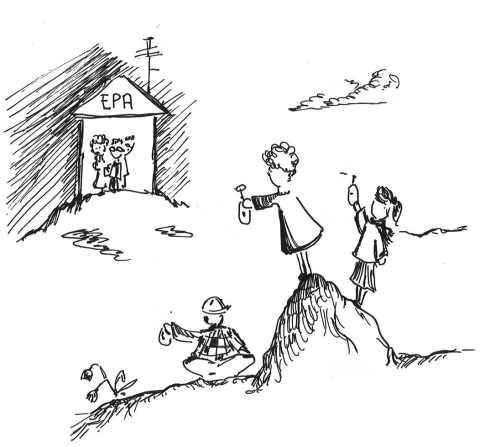PhD Defense A. Berti Suman
ONLINE Sensing the risk. In search of the factors influencing the policy uptake of citizen sensing
- Supervisors: Prof. R.E. Leenes, Prof. J.M. Verschuuren
- Co-supervisor: T. Broer
Tilburg University follows the guidelines of the National Institute for Public Health and the Environment (RIVM) concerning the corona virus. Due to the most recent developments, we offer these PhD defenses via a live stream. Therefore, the ceremony can be attended online via this live stream.
Summary

‘Citizen sensing’, framed as grassroots-driven monitoring initiatives based on sensor technology, is increasingly entering the debate on environmental risk governance. When lay people distrust official information or just want to fill data gaps, they may resort to sensors and data infrastructures to visualize, monitor and report risks caused by environmental factors to public health. Although through a possible initial conflict, citizen sensing may ultimately have the potential to contribute to institutional risk governance. The practice, manifesting claims based on individual rights such as the right to live in a healthy environment and the right to access environmental information, brings the promise to make risk governance more transparent and accountable.
Whereas studies on broader citizen science and on citizen sensing often focus on the learning gains for the participants, this thesis rather explores the potential for the sensing citizens to concretely influence risk governance through policy uptake. It inquires: “Which factors contribute to the policy uptake of community-led citizen sensing, responding to a risk and eventually generated by distrust, and which interventions are needed for citizen sensing to complement institutional risk governance?” This complementary potential is assessed by empirically researching the policy uptake of citizen sensing and the influence of factors such as the technology element, the grassroots’ drive, risk, distrust and social uptake on this outcome.
A number of case studies are investigated adopting a combination of methods, including ethnographical research (on two selected cases), descriptive analysis and fuzzy-set Qualitative Comparative Analysis (on a larger set of cases). The cases are analysed through a theoretical framework built on legal, socio-political and Science and Technology Studies’ scholarship on risk governance, environmental justice, co-production and the role of non-expert knowledge in society.
From the analysis, a framework for integrating citizen sensing into institutional risk governance is drawn, envisaging various levels of integration and targeting possible inhibitors and challenges to the process. The main findings include the essential role of risk and sound technology for policy uptake; the unexpectedly positive influence of distrust; the need for a legal instrument regulating citizen sensing and including a legitimate base for it, eventually to be grounded in a ‘right to contribute to environmental information’; the identification of a ‘dilemma of integration’ deriving from the incompatibility of integration with strongly community-led projects.
